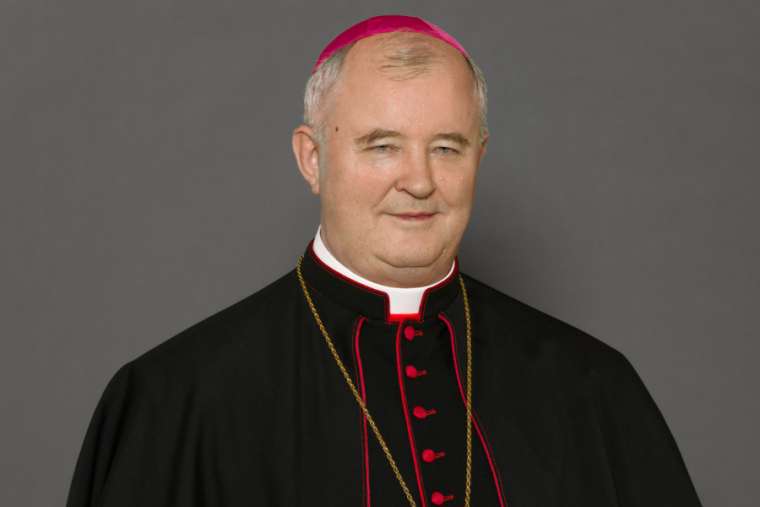Archbishop Aurel Percă of Bucharest, Romania. Courtesy photo.
Archbishop Aurel Percă has never led his archdiocese in normal times. He was installed as Metropolitan Archbishop of Bucharest on 11 January 2020, shortly before the coronavirus pandemic engulfed Romania.
In his first year in office, the 69-year-old has faced tremendous obstacles in getting to know his archdiocese, which covers more than 35,000 square miles, including not only Romania’s capital city but also much of the south of the country.
In a 21 February interview with CNA, Percă acknowledged that his first 12 months as archbishop have been “pretty hard.” He has been unable to introduce a “concrete pastoral program” or meet as many members of his flock as he would have liked because of COVID-19 restrictions.
But he is nevertheless grateful that he has been able to reach people through his live-streamed Masses at St. Joseph’s Cathedral in Bucharest, which have also been transmitted on Romanian television.
“Thus, my messages were able to reach a much larger number of Catholic believers, and not only, both in Romania and abroad,” he said.
“But it was very difficult to communicate with them, having an empty church before my eyes and addressing myself to empty benches — where you usually cross eyes with the faithful.”
Romania, a nation of 19 million people bordering Ukraine, Moldova, Bulgaria, Serbia, and Hungary, has one of the highest poverty rates in the European Union. It has recorded more than 20,000 COVID-19 deaths as of yesterday, according to the Johns Hopkins Coronavirus Resource Center.
“During the lockdown, for three months, we celebrated a Holy Mass in the cathedral every week, usually on Fridays, for coronavirus victims, for patients in hospitals, but also for sanitary and medical staff,” recalled the archbishop, who was elected president of the Bishops’ Conference of Romania in September 2020.
“It was a way to show solidarity with all those affected by COVID-19 and to be near those people who lost someone in their families.
Source: CNA

